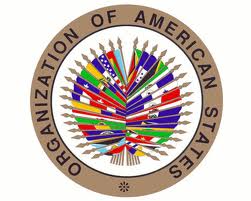 In light of last month’s VI Summit of the Americas in Cartagena, Colombia, it seems obvious and commendable that the Secretary General of the Organization of American States (OAS), José Miguel Insulza, would call on the leaders of the region Friday to help coordinate the fight against transnational organised crime. The threat is, he claimed, the “main challenge to security in our hemisphere.”
In light of last month’s VI Summit of the Americas in Cartagena, Colombia, it seems obvious and commendable that the Secretary General of the Organization of American States (OAS), José Miguel Insulza, would call on the leaders of the region Friday to help coordinate the fight against transnational organised crime. The threat is, he claimed, the “main challenge to security in our hemisphere.”
Insulza’s call comes on the heels of the adoption in Cartagena of Mexico’s proposal to create an Inter-American Centre for Coordination against Transnational Organised Crime. It is clear that dealers in drugs, arms and human trafficking (these items increasingly the wares of the same criminal merchants) do not limit their activities to the confines of national borders. And as Mr. Insulza noted, “criminals cross borders much more easily than we do.”
While a cursory look at the “Americas” section on either the BBC or the New York Times websites would tend to corroborate his stance, I can’t help but wonder if zoning-in on organised crime represents a band-aid solution to the regions problems, instead of a holistic approach to dealing with the security issues posed by these organisations across the region. This approach seems more palatable for not only the English (and French) speaking North, but also for the Latin American governments who have a lot more than organised crime to clean up at home.

The security problems that face the citizens of the Americas, especially those in the Andean and Central American regions, are very real. Organised crime in the north and along the coasts in Mexico has resulted in open gunfights between the army and the drug cartels, and fuelled the exploitation and mass murder of transiting migrants and the proliferation of extortion and corruption. Central American countries too have suffered, as their territories have become the main transit routes to the northern consumer markets. Increasing levels of violence, gang membership, kidnappings and extortion are all reflections of the pervasiveness to which organised crime has penetrated these societies.
Yet monitoring, tracking and coordinating responses to organised crime are only part of the solution – and in your blogger’s opinion, the least important. The summit meetings in Cartagena made headlines last month across the continent because the leaders of the Americas recognised that the U.S.-led ‘War on Drugs’ is a failure. Not only did many Latin American Presidents call for its end; some of them, led by Guatemalan President Otto Pérez Molina, pushed for decriminalising illicit drugs. Even President Barack Obama and Canadian Prime Minister Stephen Harper agreed that the War on Drugs had failed. Indeed, like any other rehabilitation programme, recognising that there is a problem is the first step.
Yet, what worries me is what comes next. Even though the U.S. has demonstrated a willingness to open the drug war agenda to regional discussion, President Obama (supported by Canada) has flat-out refused to even consider decriminalisation as an option. This stance will be sure to cause a rift in hemispheric relations as countries who have suffered the brunt of the violence for what they see as a demand related issue. Leaders in both Mexico and Guatemala are calling not only for the decriminalisation but maybe even the legalisation of drugs in order to weaken the cartels. Given the U.S.‘s insecurity over its southern border, we can only imagine how it would react to legalisation and decriminalisation policies from its southern neighbours.
At a recent talk, Gary Cohen, the co-founder of Healthcare without Harm, noted that in Western medicine we tend to “try and treat the victim once they are already drowning instead of asking why they fell into the water in the first place.” I think the same can be said about creating a Centre for Coordination on Transnational Crime in the Americas. It’s reactive, when what is really needed is preventative care for the problem.
The issues surrounding transnational organised crime run deeper than coordination efforts. While I grant that the acknowledgement of the failure of the War on Drugs is an important first step, security will not be achieved in the Americas until we take seriously the issues that create the environment suitable for insecurity – a weak rule of law, punitive judiciary systems and the inability of many members of society to achieve a dignified standard of living, among others.
Transnational organised crime concerns the whole of the Americas and it can only be solved through a regional solution. Thus, if the United States and Canada truly internalize the Summit’s title “Connecting the Americas: Partners for Prosperity”, they need to actually listen to and try to really understand the plights of their southern neighbours in a holistic and open-minded fashion in order to achieve a genuine partnership that will ensure prosperity for all of the hemisphere’s citizens.
Karina Gould is an MPhil Student in International Relations at the University of Oxford.






2 Comments